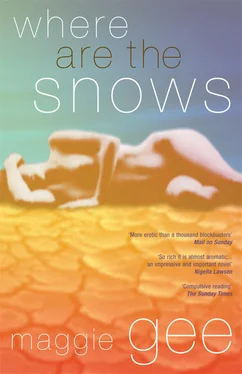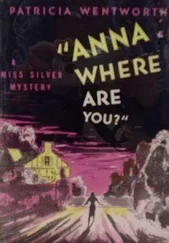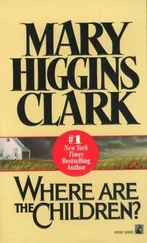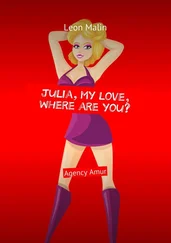I took her hand. I took her hand! After three years of looking at those hands day after day — the firm white arms, the solid hands, very smooth for her age and occupation, one particular blue vein on each inner arm, a delicate blue river dividing, diving, I’d watched them so often as she cared for me — placed steaming plates of food before me — ironed my clothes or poured my wine, and all she offered me was good and wholesome, I knew them so well I could have mapped those veins — after three years of watching Lucia, I took her hand, I touched her flesh.
I decided to try and say all this, I spoke to her eloquently of her goodness, her wholesomeness, her hands, her veins, but something wasn’t right, she hadn’t understood, there was a problem with my Italian, perhaps, I held her tighter and spilled more words.
Perhaps I mentioned I was a hero. Perhaps I had drunk rather too much wine. Alas, I am sure I spoke of love, and even as I said it the flood tide was draining, my certainties were on the wane, the rice was cold, I had spilled some wine, there were splashes of it all over her apron, I tried to take her apron off; I asked her, I think (and the timing was wrong, as I pulled at her apron-strings, absurdly knotted), if she would marry me — and because her expression was not encouraging, because she was getting very red in the face and her bulging eyes reminded me unpleasantly of the poor woman I had saved that day, I rushed on to explain that although I was married, I was willing to get divorced tomorrow, my wife was a bitch who had abandoned me, and now at last Lucia was becoming compliant, her fingers clasped mine on the apron-strings — she shouted that she was a married woman. She pushed me away. I pulled her back. I tried to kiss her. She boxed my ears. She battered my ears which were already painful. I don’t want to remember the things she said.
(— I remember perfectly. She called me a dog. She called me a stupid drunken old man. She said she wasn’t surprised my wife had left me. She said she was leaving now, at once, I would have to get my own breakfast tomorrow.)
Now I am in bed. It’s four in the morning. I fell into bed like a stick or stone and unconsciousness swallowed me up at once. Now it has sicked me up again. I must have been too tired to brush my teeth, my mouth is a sticky, salty cave, fluffed with dust when I try to breathe. The drink has faded but its dying echoes send memories crashing round my head, jolting from nothingness to frightful clarity. I shall not sleep again tonight.
Perhaps my motives weren’t wholly romantic. Returning sobriety casts all into doubt. It makes me wince. It makes me smile.
— I remember that after she boxed my ears and said she was going to leave at once my attention fell on the dirty table, the greasy plate, the cooling rice, the bottle of wine, which for some puzzling reason was lying empty on its side, with a thin lagoon of blood beside it — I believe I begged her to stay and clear up.
One last clear shot of her outraged back.
Goodbye, Lucia. Try to forgive. Think of me again as a foolish old grandfather.
(But I can’t help wishing she’d believed my story. I was brave today. I know it’s true.)
Whatever I have failed to do in the world; whatever I have stinted, or omitted; whoever I’ve insulted, or let down, this afternoon I wasn’t a failure. I stood my ground, I saved someone. I was a man… I was serious. Whatever it means, to be a man.
Once, I remember, it did have a meaning. Something my father said to me. I had been involved in some bullying at school. I was a passive spectator on the fringes, not really an aggressor but still implicated, still one of the names the desperate victim finally gave to the headmaster. My father was summoned to see him — my mother was summoned but my father went, because my mother thought the headmaster a bore and his yellow buck teeth made her want to giggle — in some ways my mother was a limited woman.
My father and I had a long talk when I came home, intensely painful to both of us. I was both ashamed and eager to insist I didn’t have that much to be ashamed of. ‘I want you to be a man,’ he said, his dark eyes turned on the ground as they always were when he talked of anything important. ‘A better man than I am. I want my son to be a man. I want you to stand up for what’s right. Even if it’s only one single person. If you had stood up for that one person.’
And then he went on, as if talking to himself, looking out of the window now, over the garden he’d never cared for. ‘It doesn’t have to be a great, grand cause. I never trust causes, or abstract things. You can be very wrong about abstract things. Wars and cruelty come from causes. But if you see people suffering. Suffering things. People, animals. You know it’s right to stand up for them. And then I would have been proud of you. You could have been proud of yourself.’
I was a man today. I am proud of myself. If my father saw, he is proud of me.
I find myself thinking of my son. I find myself wishing that he had seen, too. I don’t think I helped him to be a man. I don’t think I gave him a very good example. And it seems he shied away from being like me, my kind of man, a normal man… if that murderer down by the water was normal. I’m sorry, Isaac, for my stupid thoughts, I know homosexuals are normal too, Alex lost her temper with me so often when I let remarks like that slip out… but you shied away from being heterosexual, and I can’t help feeling that was my fault. Is that what the father of every gay man feels?
I felt my son had rejected me. But of course it was us who rejected him, running off just as he was growing to manhood… by then I suppose it was already too late.
Was he a kind person? — I think he was. To various young painters, the obituaries said. To Susy. He always protected her. He came back covered in blood one day when a bigger boy had snatched her Sony Walkman and squeezed her breasts when she tried to get it back. So perhaps he was a better man than me, no matter if he was homosexual.
If he’d seen me today, he would not have been ashamed.
Half-past four. Too late for sleep. But I have done great deeds today. For once I feel almost cheerful.
Off to the bathroom. Clean my teeth. Inspect myself in the bathroom mirror. The cuts look clean, Lucia did well. I see a man in the bathroom mirror.
Carry the dirty pots downstairs. Scalding water. Salving water. Scrub all surfaces till they are clean. I stand, light-headed, in the middle of the night, in my brilliant kitchen above the black water, a bubble of brightness above the dark, though dawn smears pink along the line of the roof-tops.
And now I know I can go home.
Nothing to stay for, no one to stay for. In London, Mary is thinking of me. In London, I still have a daughter. They know about me, they care about me. They know about the past.
That A for Alexandra.
I’ll phone Susy at nine o’clock.
But the phone rang at 8.15, jolting me out of a light doze, and it was Susy, sounding tired and strained, ringing before she left for work. Instantly everything became mundane, as if we had never been out of touch. I wasn’t a hero, or a prodigal father.
She wanted me to know that Matthew was dying. ‘The children both happen to be abroad, Mary is exhausted —’
I was upstaged. ‘She wrote to me. Only yesterday. Sounding very cheery. Surely he’s been dying for some time —’
‘His other kidney packed up three days ago. I just thought you might like to say goodbye. I want to relieve Mary, but it’s the last week of term, I’m working flat out, she said you wrote to her —’
‘Yes. Look, I’ve been thinking about moving back to London… but I’ll have to tie up a lot of loose ends here —’
Читать дальше












